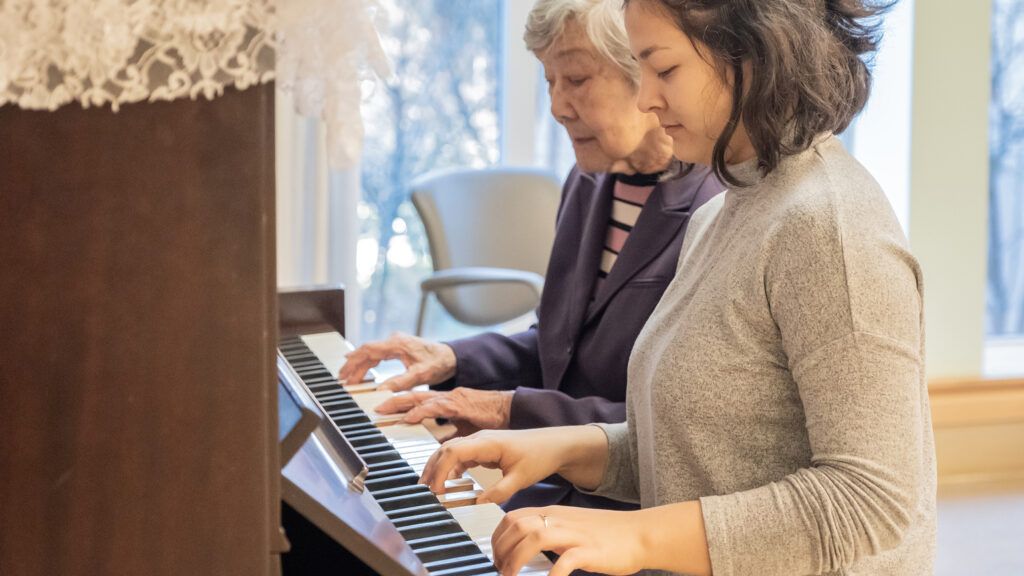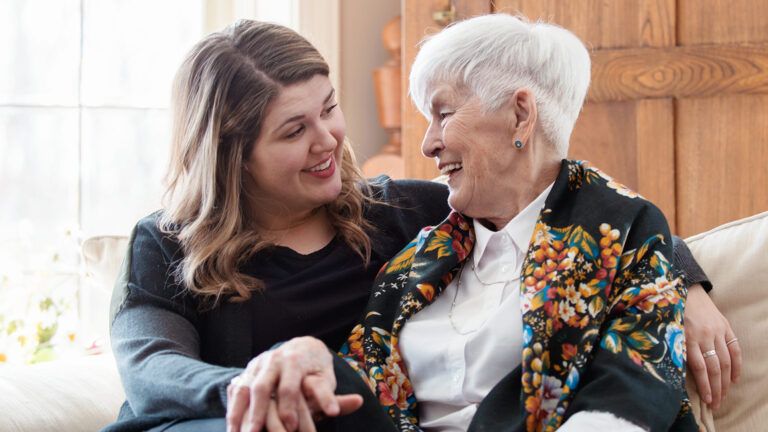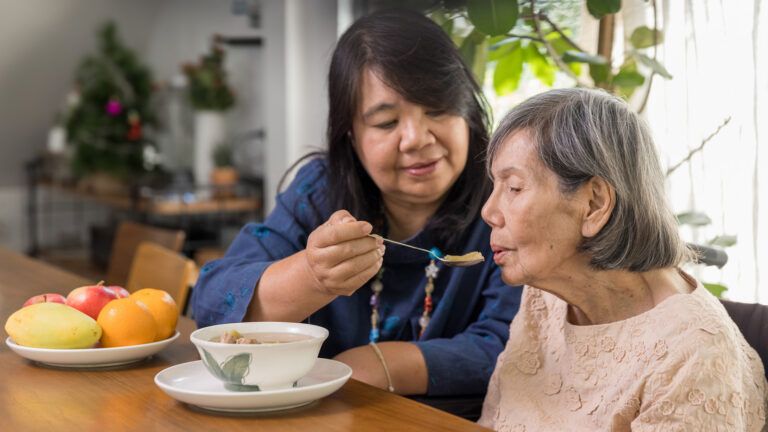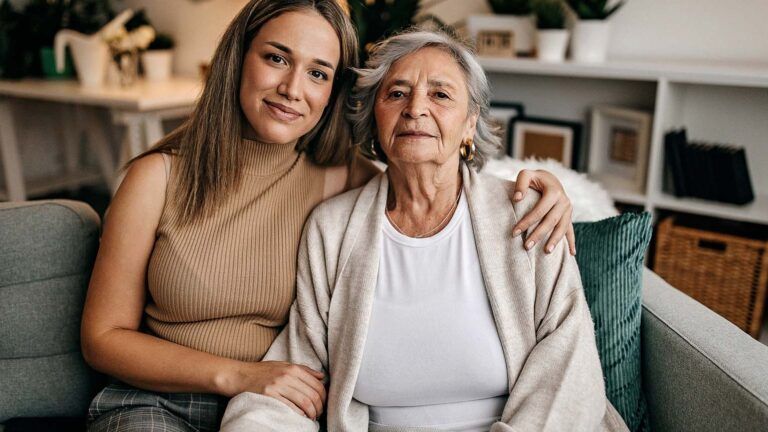Todd Simmons, MSW, LSW, is the Administrator of the Benjamin Rose Institute on Aging Adult Day Program
Shifting much of daily life to the home base has been a big part of the “new normal” brought on by the COVID-19 pandemic. Adjusting to disruptions in regular patterns and activities can be particularly hard for older adults who live with Alzheimer’s and related dementias (ADRD). It can also be challenging to their caregivers. The familiarity of a daily routine gives comfort and can be a way for someone with ADRD to cope with short-term memory loss. Having a predictable pattern of events can help transfer the schedule of a daily routine into the long-term memory portion of the brain, which can help someone to retain his or her ability to carry out day-to-day activities.
The Benjamin Rose Institute on Aging Adult Day Program, along with numerous other day programs throughout the country, has temporarily closed because of the pandemic. When an older adult with ADRD has been participating regularly in such a program, and then is unable to do so, he or she may feel restlessness, agitation or heightened anxiety. This may be what your loved one is experiencing. A disruption of this sort might have made it tougher to remain at home. If so, the following suggestions may help you to re-establish an engaging day-to-day routine for your loved one in the home:
1. Adhere to regular mealtimes
Scheduling routine mealtimes is important to maintaining other elements of daily routine like medication management. Eating together also gives your loved one the chance to socialize, unwind or simply savor a cup of tea with you.
2. Find fun ways to exercise
The recommendation of getting at least two hours and 30 minutes of aerobic exercise per week applies to everyone who can do so safely (DODD (2020) Having a Meaningful Day during Ohio’s Stay-at-Home Order). You can find many different examples of chair-based exercises online to show you how to get the blood flowing. The CDC offers online resources to a variety of options including adaptive Tai Chi and Yoga. As long as it’s safe to do so, you can take your loved one for walks around the block, or on accessible trails at nearby parks, a great source of fresh air and sunshine. Don’t forget to check with your loved one’s physician before starting an exercise routine.
3. Explore music therapy
Music therapy can be an effective activity for people with dementia, as it helps to stimulate remote memory, which can lessen confusion over their surroundings. Research suggests music helps reduce agitation in 70 to 90 percent of individuals in the advanced stages of dementia. You could assist your loved one with listening to music on a personal device with headphones, or the two of you could enjoy it together. You may want to branch out by singing, clapping, dancing or playing instruments. A personalized playlist can have added benefits for people with dementia. According to neurologist Oliver Sacks, “Music evokes emotion, and emotion can bring with it memory… it brings back the feeling of life when nothing else can.” When paired with everyday activities, music can help those with memory loss develop a rhythm that will help them recall their day-to-day activities and improve their ability to do them over time (TruSense, 2018).
4. Mix in creative activities
These challenging times can also be looked at as an opportunity to tap into existing capabilities and prior interests; or explore new interests, hobbies and ideas (DODD (2020). Arts & crafts are open-ended activities providing the option to try different projects such as stringing beads, making items, sculpting with clay/Play-Doh or using paint-by-number kits. Coloring, drawing and sketching are creative ways to flex one’s brain, and help express thoughts and feelings (n4a (2020) Create Connections Without Technology).
5. Tap into technology
Zoos, amusement parks and museums throughout the country have created virtual tours and exhibits that you and your loved one can view and discuss with one another. Free video conference technologies like Zoom, FaceTime and Skype are great ways for your loved one to remain connected, and to see whoever he or she is talking to. If your loved one does not have access to the internet or a smartphone, you can opt for more traditional ways to maintain social connections, including calling a family member or friend every day on the phone; writing a note; or making and sending a card (n4a, 2020).
6. Try a variety of low-tech activities
Additional low-tech options you may want to consider, depending on the abilities of your loved one, include playing board games, building models or tackling jigsaw puzzles (DODD, 2020). Try including your loved one in common household activities like folding towels, cleaning or cooking together using simple recipes. Gardening is another therapeutic intervention that engages the senses and can provide positive emotions that may no longer be experienced regularly (Sauer, A. (2016) Gardening Therapy Tips For People with Alzheimer’s).
Keep in mind that during this pandemic, it is important to follow CDC guidelines for heightened hygienic practices. It can be helpful to put handwritten notes or signs in the bathroom and other places to remind your loved one to wash his or her hands with soap for 20 seconds. If your loved one has trouble getting to the sink, you may want to demonstrate proper handwashing or use of alcohol-based hand sanitizer with at least 60-percent alcohol to replace handwashing. Be careful also to keep up a rigorous cleaning schedule, sanitizing household areas that are touched and used frequently.






